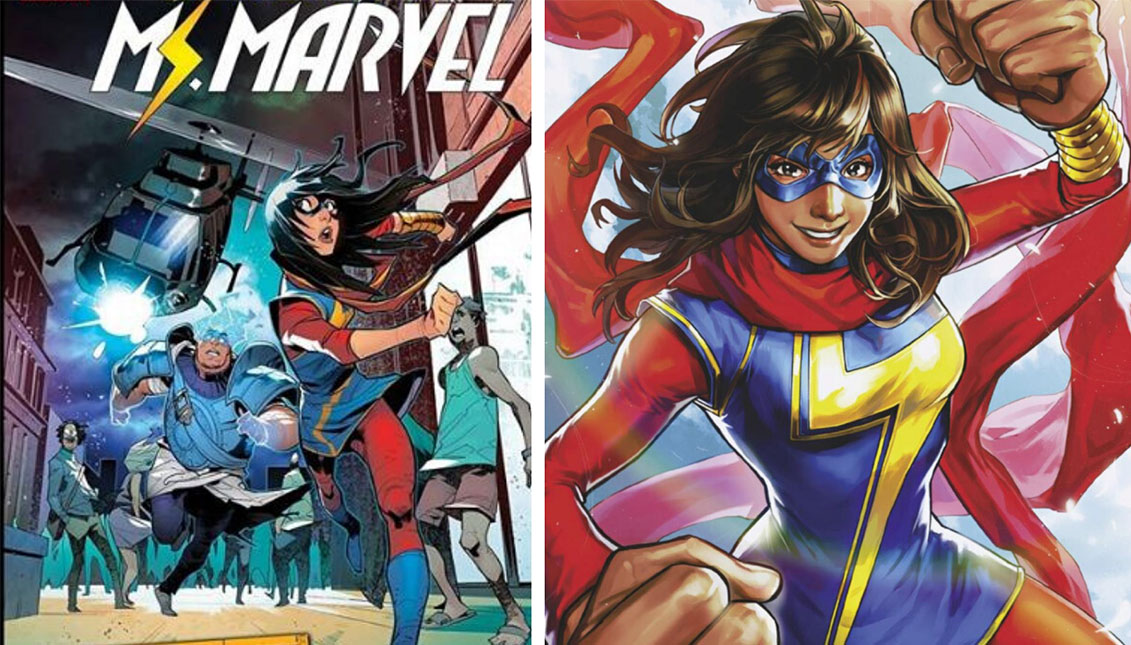
Bisha K Ali and Ms. Marvel's synchronic rise
The explosive and laborious promotion of the young Muslim scriptwriter Bisha K Ali finds an echo in the superheroine that she will now bring to life in a new…
Television and comic book writers slowly internalize that their job is one that transposes fiction and reality in the form of storytelling. When you start writing about an issue, it may slowly engulf you, or you may use your own memories for a fictional exercise to discover powers you didn't know you had.
This is why Bisha K Ali's interview with the English newspaper The Guardian resonates with synchronous echoes, where the new writer of the Ms. Marvel series explains how she went from poverty-stricken subsistence to directing the first series of a Muslim character for the Marvel Cinematic Universe (MCU) in just a few years.
In the story, she recounts her evolution from a two-room apartment in London looking for gigs, to her current situation of abundant work as a screenwriter in Los Angeles.
"It is a trauma to be in constant fear of not being able to survive. Now I feel this deep sense of joy. What a gift,” she said.
Ali also explained how she self-taught herself to improve her scripts after her first, explosive appearance in Four Weddings and a Funeral and the even more successful Sex Education. Now, as Ms. Marvel's showrunner, she realizes she's just like superheroine, and will better bring her to life as a result.
RELATED CONTENT
"Ali and I are both young, Muslim women from London who struggled to make it in our chosen careers before we moved across the pond. Both of us know the price women of color can pay for being prominent, for simply existing in a public space,” she said.
The dramatic background to both narratives is that over the past few years, the comic book industry has proven to have one of the most restless fandoms. There have been numerous rifts among artists in recent years, annoyed by what they consider an Islamic agenda in traditional superhero comics, confronting alt-right messages with progressive characters that have always shown companies like Marvel through racial and intersectional inclusion.
For this reason, after other controversies due to the sexual orientation or skin color of certain characters from Marvel's arachnid universe, the appearance in 2013 of Kamala Khan was considered a ratification of this commitment to inclusion. The successor of Ms. Marvel's legacy, Khan thus became the first Muslim woman to have her own comic book.
The Marvel universe has been one of the most important commercial arenas since the beginning of our millennium — the pure pop mythology that flows through all the screens of the world generates millions. So it is not surprising that they decided to expand it with announced products such as WandaVision, Loki, or the aforementioned Ms. Marvel.
For all this, coming from the world of comedy and stand-up in London, it seems that in order to protect herself from the trolls and the attention that the launch of the series will bring, it seems Ali has erased several dozen potentially controversial tweets, as other screenwriters also did when they signed with Disney+.
The power of the young Kamala Khan is to stretch herself without limits. Such flexibility is shown by the also young Bisha K. Ali amid her modest rise that reveals she can represent so much.











LEAVE A COMMENT: